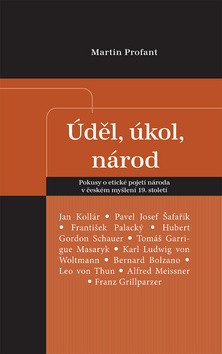Description
The monograph deals with various definitions of the nation in the Czech context from the end of the Napoleonic Wars to 1895. It selects and interprets them from the perspective of an ethical nation, which represents a consciously accepted task to overcome the naturally given particularity (ethnicity) and replace it with a morally and freely created unification of patriotism and humanity, eventually cosmopolitanism. The first part of the text focuses on two romantic interpretations of the ethical nation. The earlier, Jena-inspired romantic conception is related to the Czechoslovak nation, as it was established in the Prešpurk friendly group (Šafařík, Palacký, Kollár) at the turn and end of the second decade of the 19th century. Another conception of the nation was developed by Palacký in his historical works analogously to German liberal nationalist historians (Gervinus, Dahlmann). A separate chapter then addresses Palacký's attempt to transform this originally apolitical conception of the nation for the political challenges of 1848/49. The concluding part of the monograph analyzes two cases of a realistic ethical conception of the nation formulated by H. G. Schauer and T. G. Masaryk.
Information
Author: Profant Martin
Publication date: March 6, 2018
Manufacturer: Nakladatelství Epocha s. r. o.
Genres: International relations, Non-fiction literature, Technique, Non-fiction literature, Czech and czechoslovak scene, Books, Specialized and technical literature, Social sciences, Society and politics, History and facts
Type: Hardcover books
Pages: 144
ISBN/EAN: 9788075570994

